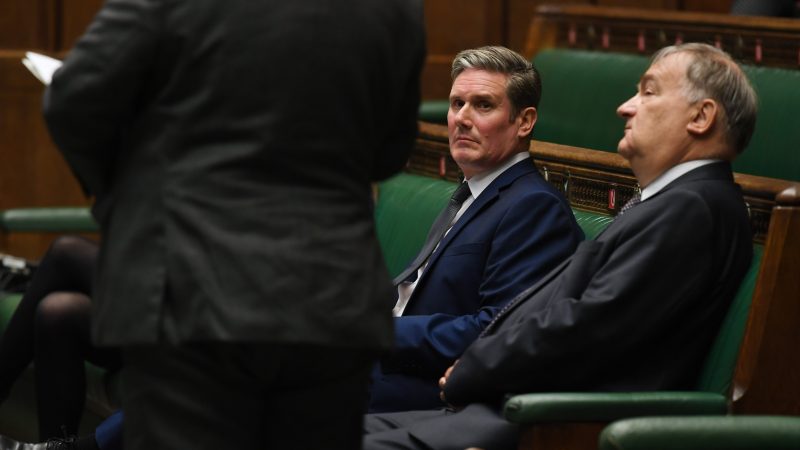
20 Labour MPs defied the party whip last night to take a stand against the covert human intelligence sources (criminal conduct) bill, which was approved by the House of Commons at second reading with just 21 ‘No’ votes, plus two tellers. (Labour rebels were first mistakenly recorded as 19 by the Commons.) Read our full write-up here. The leadership had set a one-line whip to abstain, despite having reservations about the details of the bill – just teeny little details, like no limits being placed on the types of crimes that can be authorised.
As with the overseas operations bill two weeks ago, which also creates a risk that the worst crimes could go unpunished, Labour wants to be constructive in its opposition. The leadership says it agrees with the principles of these bills: protecting armed forces personnel from “vexatious claims” last time, and putting activities carried out through undercover policing on a “statutory footing” now. It wants to work on a cross-party basis to change them in the next stages.
The rebellion was only very slightly larger this week, but the opposition to the bill among Labour MPs was definitely broader. LabourList understands that concerns about the whipping arrangements were voiced by MPs from across the party, from Stella Creasy and Steve McCabe to frontbenchers Emma Hardy and Dan Carden, in a Zoom meeting with Nick Thomas-Symonds. I’m told no assurances were given to MPs that the Labour whip would be to vote against the bill if it is not amended significantly. Its third reading is likely to spark resignations if the leadership does not take that position, however.
In happier news for Labour (and good news for moral decency generally), the government suffered a string of defeats in the House of Lords yesterday. Lord Dubs won backing for his amendment in support of family reunion rights for unaccompanied child refugees beyond the Brexit transition period. Priti Patel’s immigration bill was changed in six ways that the government did not want, from preventing European Economic Area nationals from being detained for more than 28 days to giving children in care automatic Leave to Remain under the EU settlement scheme.
If you’re interested in watching Rachel Reeves MP, Stephen Bush, Anand Menon and myself discussing Labour’s Brexit policy – you may have questions such as, ‘what is it?’ – do sign up now to our midday event with UK in a Changing Europe.
Sign up to LabourList’s morning email for everything Labour, every weekday morning.



More from LabourList
Almost half of Labour members oppose plans to restrict jury trials, poll finds
‘How Labour can finally fix Britain’s 5G problem’
‘The University of the Air – celebrating 60 years of Harold Wilson and Jennie Lee’s vision’